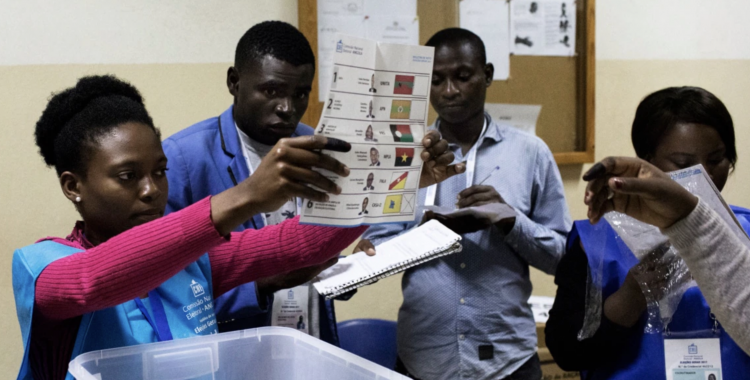"Nobody can tell me that the MPLA won, it's impossible, we were received everywhere by crowds, thousands and thousands of people, with galvanizing atmospheres, in such a way that I even turned to Adalberto [Costa Júnior, president from UNITA] telling him to get ready because he was going to be President of the Republic, such was the conviction in victory", he explained.
"These were elections that were neither fair nor transparent, but they were free because people went to vote and were not coerced to vote or not to vote," said the deputy and member of the United Patriotic Front, a coalition that included the National Union for the Total Independence of Angola (UNITA) and the Bloco Democrático, on the sidelines of the conference "Pluralism, Democratization and Elections in Angola and Mozambique", taking place this Wednesday in Lisbon.
Speaking to Lusa and RDP África, the also university professor said that more important than the electoral process on polling day and the following days is what happens before: "What happens before is what is important, there is a process of intoxication, of manipulation, with the State using the means at its disposal to condition the citizens' vote, and without overcoming this, the electoral results will never be fair", he said.
Justino de Andrade was one of the leaders of the coalition that ran against the MPLA in the August elections, which gave the ruling party victory, the thinnest since independence.
Questioned about what must then change for the elections to be fair, Justino de Andrade said that it is the functioning of the institutions that has to be changed to guarantee impartiality.
"The entire logic of functioning of the State has to change, otherwise the results will always favor the party in power; the media is horrible, toxic, manipulated and you can clearly see that they are people who are providing a service to the party in power; the CNE [National Elections Commission] cannot be trusted, it is the exclusive domain of the party in power, and whoever says the CNE, says the Constitutional Court, that they manipulate everything, and therefore the results are always favorable to those in power," he argued.
Repeating the criticisms made earlier by activist Luaty Beirão about the role of international observers, Justino de Andrade said that many only do electoral tourism.
"Observers, in general, go on electoral tourism, they go, they talk to the parties, with the people, they go to the beach and then that's it, they come and say that the elections were free, fair and transparent", he lamented.
Voters vote, "but then their vote is diverted, it is misrepresented, and the law does not allow comparing the data obtained by the parties with the data presented by the CNE, which is a way of preventing the manipulation process from being unmasked, for this is said that there are CNE deputies, and then there are the people's deputies", he concluded, in a reference to MPLA deputies and opposition deputies.
The general elections in Angola held in August this year were marked by contestations by competing parties, who alleged a lack of transparency in the entire electoral process, which led João Lourenço, leader of the MPLA, to the President of the Republic, in a second term.
The Constitutional Court proclaimed the MPLA and its candidate, João Lourenço, as winners with 51.17 percent of the votes, followed by UNITA with 43.95 percent, having failed UNITA's electoral litigation appeal.
With these results, the MPLA elected 124 deputies and UNITA 90 deputies, almost twice as many as in the 2017 elections.







